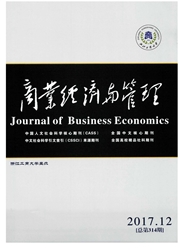

 中文摘要:
中文摘要:
通过对中国文化背景下,组织公正、社会交换关系变量与员工心理契约违背间的关系研究,运用结构方程建模技术对35家企业410位员工的调查数据进行检验。结果表明:组织公正和领导-部属交换关系问卷具有良好的构思效度;组织支持感和领导-部属交换关系对组织公正各维度均有显著的预测作用;程序公正、互动公正是心理契约违背感的有效预测指标,对组织支持感与心理契约违背间的关系具有部分中介作用,组织支持感还会对心理契约违背产生直接影响;领导-部属交换关系完全通过组织公正的中介作用对员工心理契约违背感产生影响。因此,文章在检验中国文化背景下组织公正维度结构的基础上,拓展了组织公正、社会交换关系变量与员工心理反应的关系研究。
 英文摘要:
英文摘要:
Under the circumstance of Chinese socio-economic transformation, organizational justice becomes an important topic on industrial and organizational psychology. Previous research has tested the relations among organizational justice, social exchange relationship, and individual psychological reaction variables. Based on social exchange theory, Tekleab, Takeuchi, and Taylor (2005) proposed that social exchange relationship would mediate the relation between organizational justice and psychological con- tract breach. But, Lee (2000) suggested that the quality of relationship between employee and organization would affect the organi- zational justice perception based on Tyler and Lind's relational model. However, few study compared the rationality of social ex- change theory and relational model with cross-validation. The following measures were administered to a sample of 410 employees from 35 companies: The organizational justice ques- tionnaire developed by Jin(2005 ) based on the research of Colquitt(2001 ) ; the perceived organizational support scale developed by Eisenberger(1990) , leader-member exchange scale developed by Wang, Niu and Law(2004) , and we adopted psychological con- tract breach questionnaire developed by Robinson and M orrison(2000). Using structural equation modeling(SEM) technique, this study tested the relations among organizational justice, social exchange relationship and psychological contract breach. Confirmatory factor analysis supported the 3 dimensional model of organizational justice. Research results demonstrated that perceived organizational support and leader-member exchange would predict the 3 dimensions of organizational justice. Procedural justice, interactional justice mediated the relationship between perceived organizational support and psychological contract breach. The effect of leader-member exchange was mediated by procedural and interactional justice variables. Path coefficient between dis- tributive justice and psychological breach
 同期刊论文项目
同期刊论文项目
 同项目期刊论文
同项目期刊论文
 期刊信息
期刊信息
